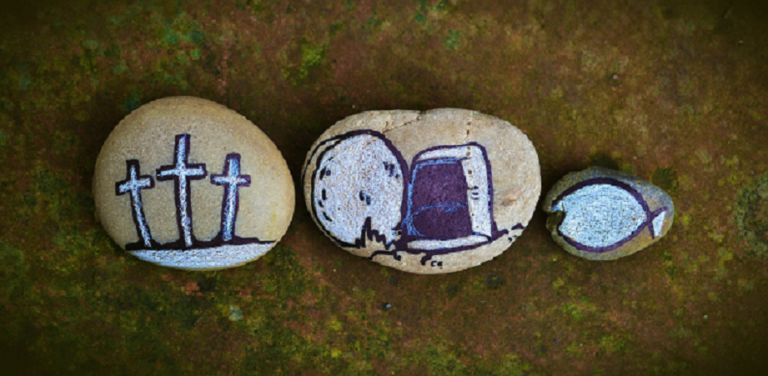Go and Sin No More
Go and Sin No More
In John’s Gospel, he records the story of the prostitute that the Jewish leaders brought to Jesus, caught in the act of adultery. The Jewish leaders tried to use her to trap Jesus. If He said to let her go, then they could accuse Him of being a lawbreaker. If He said to stone her then He would no longer be seen by the people as the “friend of sinners”. After writing in the sand, He said, ” He who is without sin among you, let him throw a stone at her first”. In the Greek, this phrase means “without this sin.”

Jesus perceived that justice did not interest them because they only brought the woman. If she was caught in the act of adultery, then the man she was with was guilty of adultery as well. More than likely, one of the men waiting to stone her was the one who was also caught in the act. One by one, each man dropped their stone and walked away. Jesus asked the woman who accused her, and she replied, “No one.” He told her then that He did not accuse her either.
But wait a minute.

Even so, the law of Moses demanded that she be stoned because she was caught in the act of adultery. Wasn’t Jesus disobeying the law of Moses? No, because the law of Moses also demanded that all capital punishments could only be administered by the testimony of two or more witnesses. Because all of the accusers had gone, the punishment of stoning no longer applied.
Then, Jesus said something to her that I find amazing. “Go and sin no more.” I have heard this command over and over in my life, without really thinking about what it meant. Jesus was telling her to go and sin no more. Not just this particular sin, but all sin. How could Jesus command her to do that? It is not possible for anyone to stop sinning on this side of the grave. But every time Jesus commanded something to happen, it happened. When He said, “Peace, be still,” the storm stopped. When He said, “Rise, take up your bed, and walk,” the paralyzed man got up and walked home. So when Jesus commanded the woman to “Go and sin no more,” it actually happened. She went her way and did not sin again. How?
This haunts me, especially when I go to passages like this one:
1 John 3:9 Whoever has been born of God does not sin, for His seed remains in him; and he cannot sin, because he has been born of God.
Knowing that I sin often, this passage makes me doubt that I am truly saved. This passage says that if I am born of God I do not sin, so I must not be born of God. We all sin every day. I have tried so very hard to have perfect days, days in which I do not sin, but I CAN’T do it. The more I try, the worse I get. Does this verse really mean that if I am truly saved, then I no longer sin? And if that’s the case, then how can anybody be truly saved?
I believe that I can find the answer to both of these questions in Romans 5-8.
In Romans 5, Paul says this:
But God demonstrates His own love toward us, in that while we were still sinners, Christ died for us.

In Jesus’ death, He took away the penalty of sin. The penalty of our sin is eternal death. We all deserve to die. Not just physical death, but spiritual death, living eternally outside of God’s presence. But Jesus took that penalty away when He died on the cross. Now, we can be justified – just as if we’d never sinned. God does not want any human being to suffer the penalty of death, so He Himself took it. But, we have to make the choice to accept His gift of grace. If someone decides not to accept it, then he will face God on the final day with only his works to recommend him. Because God demands perfection and no one is perfect, it does not matter how many good works you do, it will never be enough.
Jesus’ death and resurrection not only freed us from the penalty of sin, but also the power of sin. We now have a choice. We can choose to say “no” to temptation and follow the commands of the Lord. I don’t always make that choice. However, because his death removed the penalty of sin, He sees me without sin. He sees the righteousness of Jesus on me. Does this give me the freedom to sin now however much I want? After all, Paul declares:
All things are permissible for me…
But you need to continue to the rest of the verse:
…but not all things are beneficial. 1 Corinthians 10:23
And this verse:
What shall we say then? Shall we continue in sin that grace may abound? Certainly not! How shall we who died to sin live any longer in it? Romans 6:1-2
God sees us as righteous, but sin still has consequences that will hurt us and others around us. He doesn’t command us to follow His laws because He wants to ruin our fun, but He knows that sin will always hurt us and destroy our happiness and contentment. It also destroys our relationships with Him and with each other.
In this earthly life, He wants to make us more like Jesus. This is sanctification. The more like Jesus I become, the more joy He brings to my life as I draw closer to Him. He works slowly to make us more like Him, and each day I pray that I will sin a little less today than I did yesterday.
But the more I become like Him, the more I realize how far away from perfection I am. But in Philippians He gave us this promise:
…being confident of this very thing, that He who has begun a good work in you will complete it until the day of Jesus Christ. Philippians 1:6
He will continue to sanctify me until He comes to take me home. He is slowly but surely making changes in me. I am not what I should be, but I am no longer what I used to be. My question, though, is still not answered. Have I truly received salvation if I still sin?
Although His death freed me from the penalty of sin and the Holy Spirit works in me to remove the power of sin, I am still cursed with the presence of sin. Paul says this:
For what I am doing, I do not understand. For what I will [want] to do, that I do not practice; but what I hate, that I do. If, then, I do what I will not to do[do not want to do], I agree with the law that it is good. But now, it is no longer I who do it, but sin that dwells in me. For I know that in me (that is, in my flesh) nothing good dwells; for to will is present with me, but how to perform what is good I do not find. Romans 7:15-17
Sin is still in my flesh, but my old, selfish nature died with Christ on the cross. I am not under its power any longer. (Romans 6:6). I am still subject to my fleshly desires, but I have the choice to say no. But when I choose to wander to the pigpen again, it is not me. It is the sin that is still inside me.
O wretched man that I am! Who will deliver me from this body of death? I thank God -through Jesus Christ our Lord! Romans 7:24-25
In my own strength, I cannot make myself perfect. But He is working on me! When He calls me home, I will finally be free from the presence of sin. I will be perfect.

The answer to my question is, yes. I am saved. If I believe in my heart that Jesus is God, that He died to take away the penalty of my sin and rose again, then I am saved. Because my old, selfish nature has died with Him, then I am incapable of sinning. It is the presence of sin within me that sins, not me! When I allow sin to take over, I am a child of God that is choosing to wallow in the pigpen, but I am still a child of God. He will not allow me to wallow forever, and He promises that He will pull me out when I call to Him.
Therefore, if anyone is in Christ, he is a new creation; old things have passed away; behold, all things have become new. 2 Corinthians 5:17
Jesus tells all of us to go and sin no more. We just need to remember and trust that He is the only one who makes it possible.








Yes Sister!!!- just as if I never sinned. Justification.
U got it girl. I think this way all the time but these same verses bring me back. Good one sis.
Justification is a hard concept to wrap my mind around. I know it and believe it, but it takes the grace of the Lord for me to accept it for myself. It is hard to understand how God can look at me as thought I have never sinned because all I see is the multitude of sins that I have committed. Praise the Lord that He is who He says He is. That even though I don’t really understand it, I can trust in His goodness and His faithfulness.